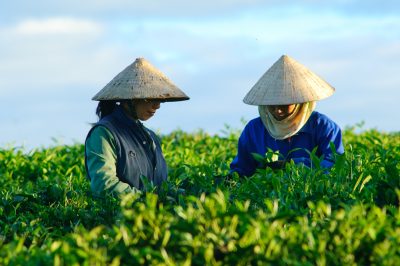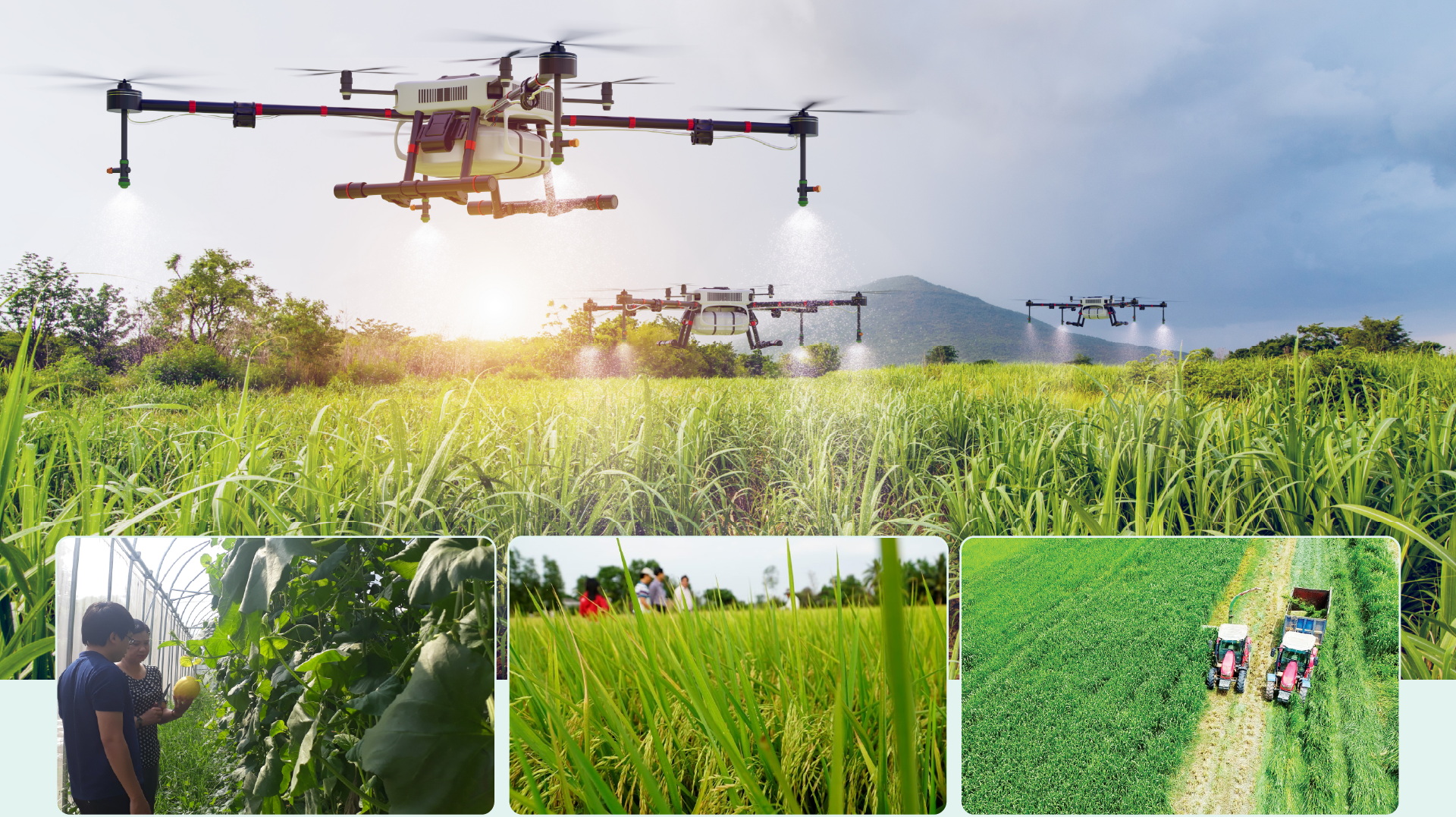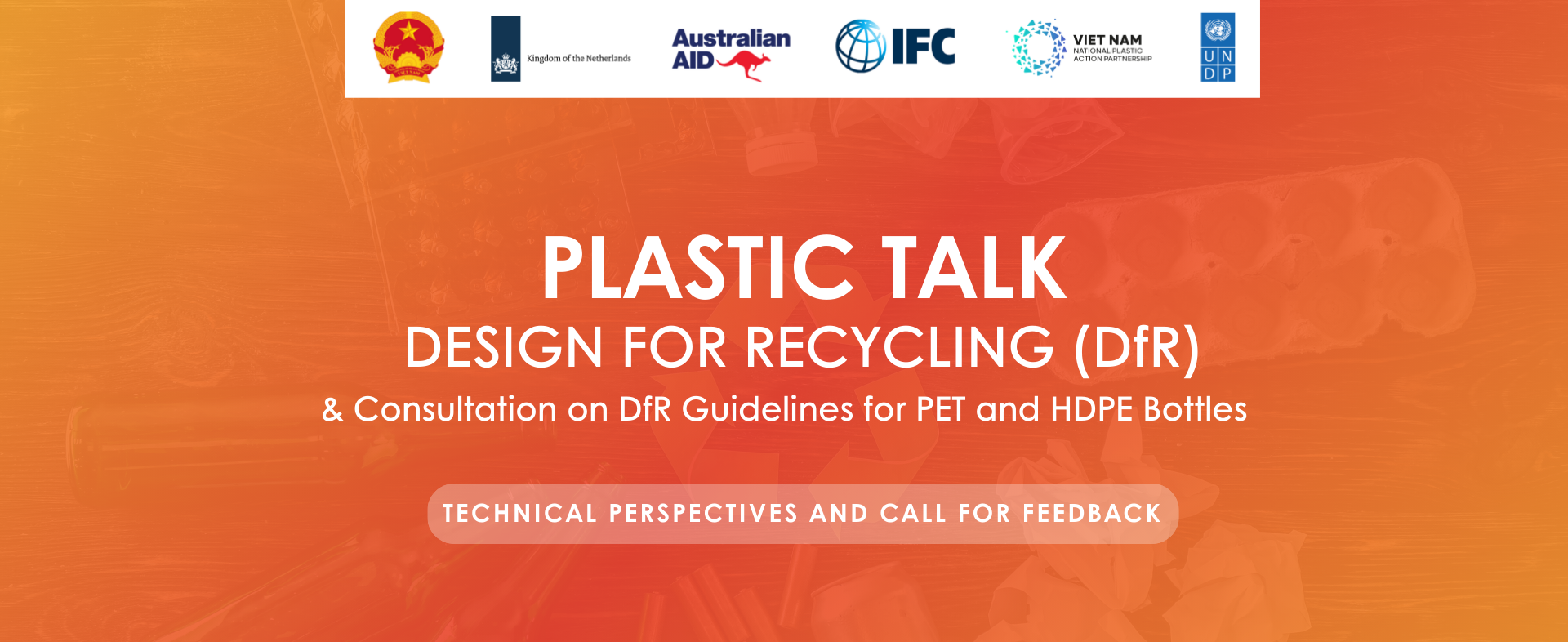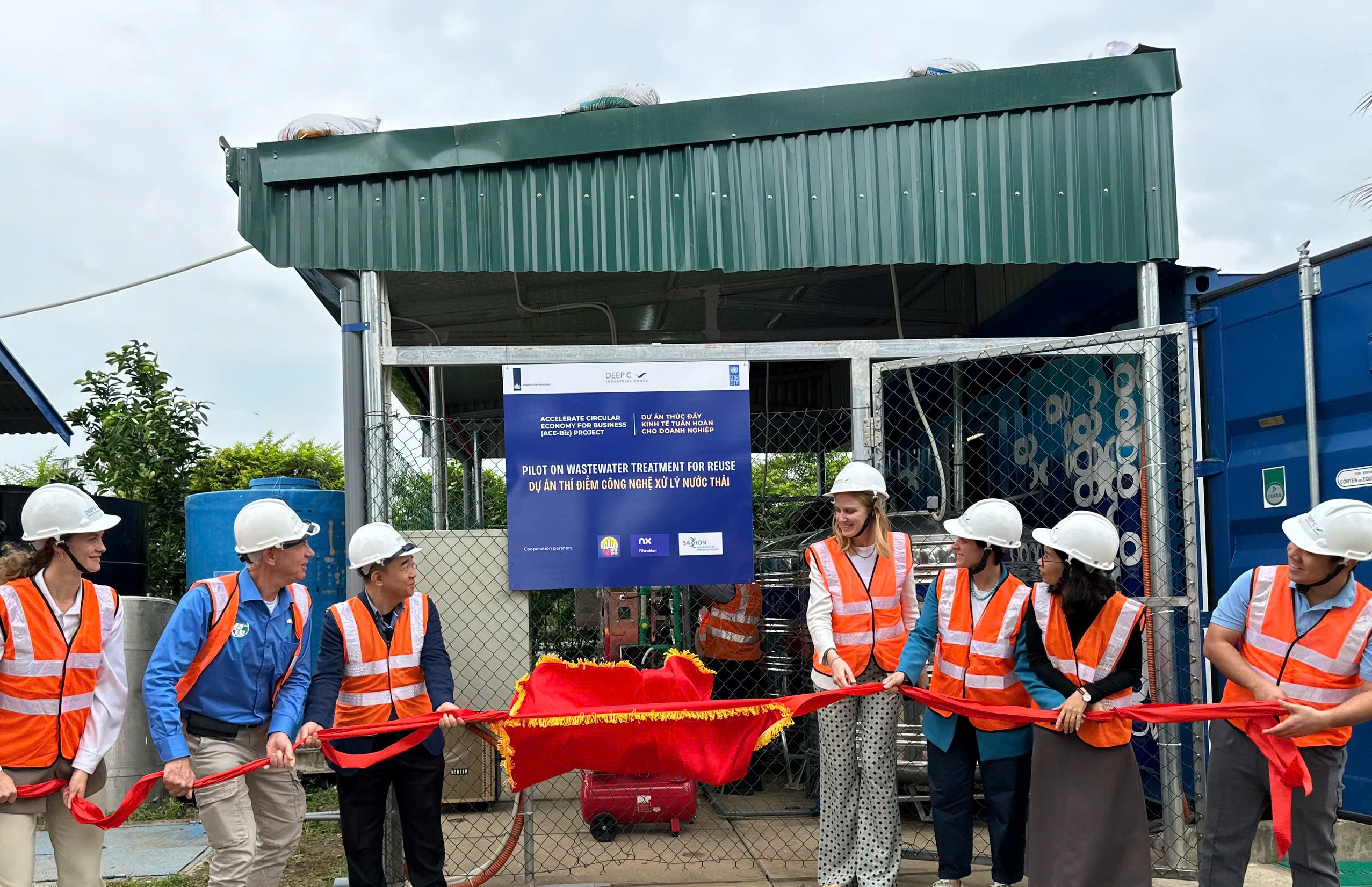
The materials are available via this link while the videos of the training can be access here.
An Giang Province, July 19, 2024 – The Partnership for Sustainable Agriculture in Vietnam (PSAV), in collaboration with the Science Institute of Rural Development (SIRD), the United Nations Development Program (UNDP), the International Water Management Institute (IWMI) , and the Deutsche Gesellschaft für Internationale Zusammenarbeit (GIZ) GmbH’s and the Department for Cooperatives and Rural Development’s project “Green Innovation Centers for the Agriculture and Food Sector in Vietnam”, organized a training on circular practices within the rice value chain. The training targeted farmers, extension workers, and cooperatives in the province.
The training was designed to assist farmers, extension workers and cooperatives in An Giang province convey knowledge and skills that aid the transition from a linear economy model, which depletes resources and pollutes the environment, to a circular economy model. The training fostered horizontal collaboration between farmers and industries that utilizes rice by-products and builds the capacity of participants in rice straw management and mechanization by raising awareness of business opportunities for re-using rice straw and technologies of mechanized composting.
Mr. Ton That Thinh, Deputy Director of the An Giang Department of Agriculture and Rural Development, highlighted that “the circular economy in agriculture is transforming the production methods of many businesses, cooperatives, and farmers in An Giang province. This transition contributes to the development of closed-loop models, environmental protection, increased income, and new production mindsets. For example, rice straw is used to grow mushrooms and then the straw residue is repurposed as organic fertilizer for rice and other crops; rice straw is used as animal feed and the animal manure is in turn used as organic fertilizer for crops; rice husks are used as fuel and the resulting ash as fertilizer for crops. Additionally, straw and husks are used for various other purposes, such as producing biological bedding, building materials, biochar , handicrafts, and pharmaceuticals. These solutions help add value to rice by-products while also creating clean and sustainable energy. This not only improves rice production efficiency and reduces pressure on natural resources but also helps to reduce greenhouse gas emissions and mitigate the impacts climate change as rice straw is no longer burnt on the fields after the rice harvest.”
Mr. To Viet Chau, Deputy Director General of the International Cooperation Department, Ministry of Agriculture and Rural Development, emphasized the critical necessity of this transition. “In the context of depleting resources and increasing environmental pollution, transitioning to a circular economy model is not just an option but a critical necessity. The circular economy helps to reuse and reduce waste and creates opportunities to add value to existing resources. This is an inevitable trend and a goal that the province is particularly focused on, aiming for sustainable and green development, contributing to the implementation of the One Million Hectares of High-Quality, Low-Emission Rice Project in the Mekong Delta, and becoming a center for high -tech agricultural development.”
Participants learned how to train farmers on mushroom production at small, medium, and large scales. The training also covered rice straw management for compost making, the technical procedures for compost making, mechanization for compost making, and the cost and benefit models of compost production and mechanization.
“We are delighted to co-organize this training with our partners and witness the growing interest among cooperatives and farmers in the Mekong Delta in adopting circular practices in rice production. From mushroom cultivation using rice straws to organic composting, several low-cost technologies enable income growth while promoting sustainable agricultural practices and reducing greenhouse gas emissions. We must now collaborate with all actors within the value chains to ensure these circular models gain access to markets, allowing them to sustain and scale,” said Mr. Patrick Haverman, UNDP Deputy Resident Representative in Viet Nam.
“There are no quick fixes for greenhouse gas emission reduction and soil fertility management. However, the ingenious ways farmers and cooperatives use excess rice straw and other organic waste sources to grow edible mushrooms and produce nutrient-rich compost demonstrate the potential for a transformative change Embracing these circular practices across the country is an effective way of reducing process-related emissions, significantly improving livelihoods, and sustaining the environmental integrity of the Mekong Delta. As a research-for-development organization, IWMI will continue providing technical assistance and support for circular business models to enable this transition,” said Dr Tosin Somorin, IMWI Circular Economy and Waste Management Researcher.
This program promoted sustainable agricultural practices, enhanced resource efficiency, and drove economic growth through innovative approaches in the rice value chain.


















